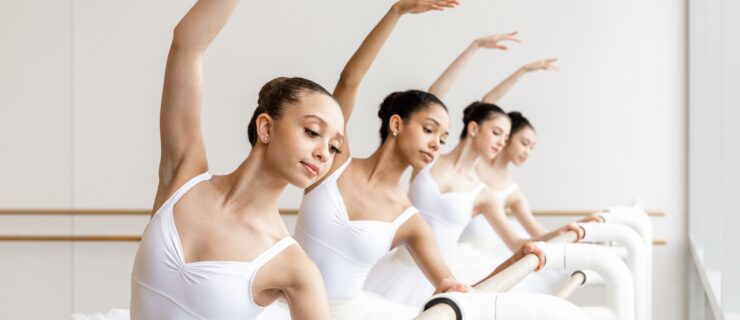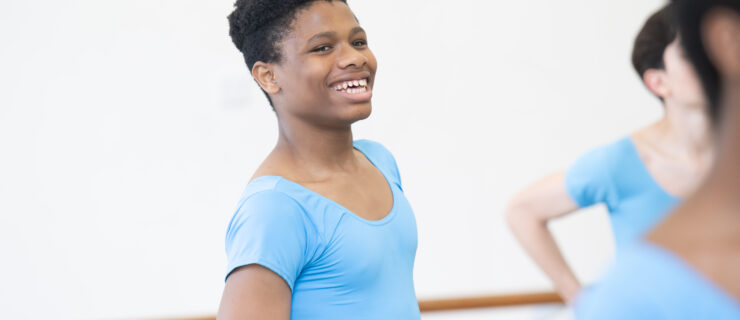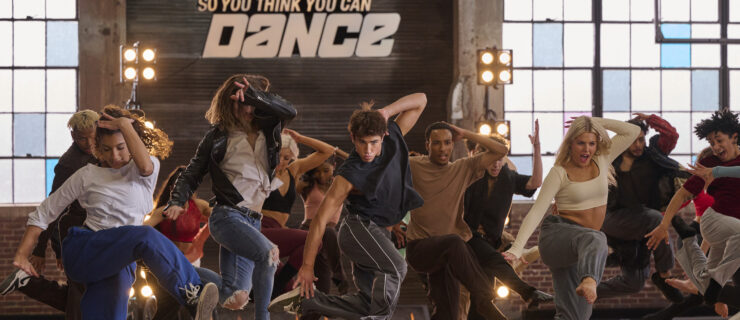Giving Comps Credit
If you can’t make it to Boston to see Melissa Hough dance, do a YouTube search and you’ll find she’s every bit as versatile as her repertory suggests. In a pas de deux with Mateo Klemmayer from Diana and Acteon, the Boston Ballet soloist proves herself to be a leggy, supple dancer who glides effortlessly from one dewy lift to the next, while in David Dawson’s The Grey Area, she’s all hip swivels and sky-high extensions. At only 22, she’s danced an impressive array of works, from Petipa to Kylián to Morris, and made headlines at prestigious ballet competitions, like USA IBC at Jackson, MS.
But before she worked her way into the ballet big leagues, she was on the competition circuit—an experience she says was as vital to her artistic and technical development as studying at the Kirov Academy of Ballet in Washington, DC. While on tour with BB in Helsinki earlier this year, Hough took some time to talk to DS about how jazz competitions can help a savvy ballerina succeed.
DS: How did you get started on your career path?
Melissa Hough:
Colleen Parker, the owner of my studio [Dance Explosion in Glen Burnie, MD] is ABT principal Michele Wiles’ aunt. When I was 9 years old, Michele was studying at the Kirov Academy of Ballet in Washington, DC, but she came back to teach master classes at the studio. She had been a part of the competition world and so she choreographed solos on me. She inspired me like you wouldn’t believe. She pushed me very hard, and eventually I decided to follow in her footsteps.
DS: When did you decide to pursue ballet as a career?
MH:
I was 11. Ballet was the most challenging style of dance for me, so I wanted to prove to myself that I was good enough to pursue it and succeed.
DS: Was competing helpful? Would you do it again?
MH:
The competitions were probably the most helpful part of my training as an artist. Between the six solos, three duets and 13 group numbers I was in as a competitor, I was performing more than some professional dancers will perform in their entire careers. There was never time to get nervous or be afraid of the stage or worry about what to do if I messed up.
DS: What can students do to succeed in the competition world?
MH:
There are a million crazy stage parents and teachers at competitions, but my parents did an amazing job of protecting me from that. I was able to focus on dancing and making friends with the many great kids who were competing for the same reasons I was. Having down-to-earth parents is key to succeeding in the competition world.
DS: What positive qualities do you have today that you credit your comp experience for?
MH:
Versatility. New York City Dance Alliance stresses that versatility in a dancer is the biggest asset you can have. It was a challenge for me to keep up in a lot of the classes they had at their convention when I was 13 and 14 years old, but it pushed me to improve. I took an entire summer to focus on getting better at hip hop, and now I feel more comfortable with it. Believe it or not, that training has come in handy at Boston Ballet. Also, the versatility I gained from competitions is the reason I can pick up choreography faster than most. And I learned my fearlessness from competitions.
DS: For dancers who want to pursue ballet, are there drawbacks to the circuit?
MH:
You have to be extremely smart about it. You can’t get too serious about the competition part or rely solely on competing to make you a well-rounded artist. Always make it about the work.
Sometimes competition studios get possessive of their dancers, and it hurts their students. It’s possible to be loyal to your studio and find help from other sources. You have to worry about yourself if you want to make it in this vicious dance world we love.
DS: What advice do you have for those who want to follow in your footsteps, but currently train at competition studios?
MH:
Take ballet class at least three times a week, and if your studio doesn’t offer it that many times, find somewhere else to get those extra ballet classes. Constantly remind yourself why you love dancing, and then live it. If you love it because it’s challenging, keep finding a new challenge to overcome. Visit New York whenever you can and take class. Find Joe Lanteri and talk to him. He’s brilliant and will guide you wholeheartedly.



